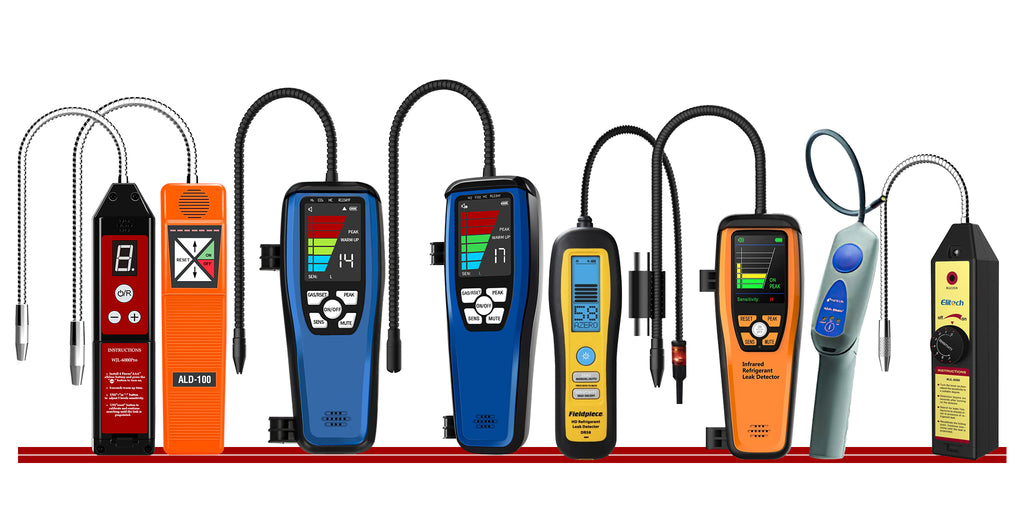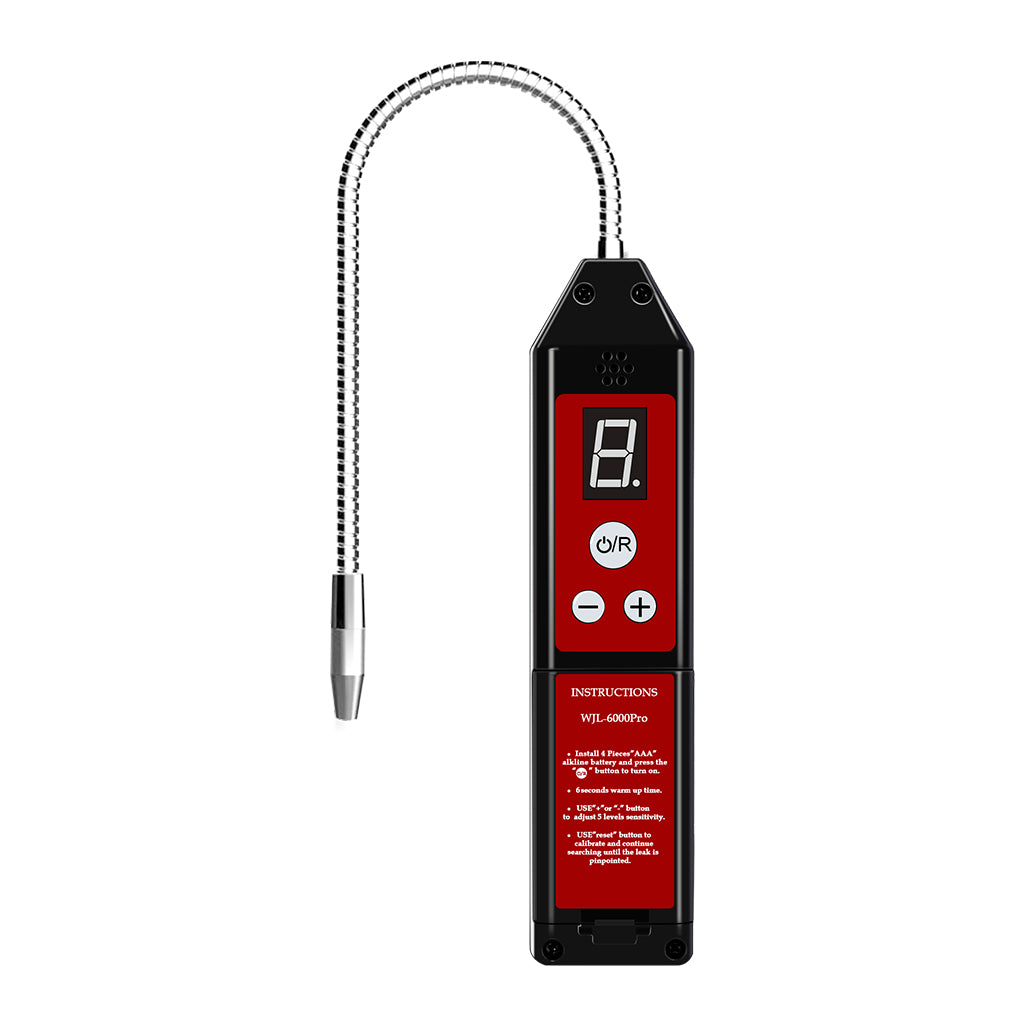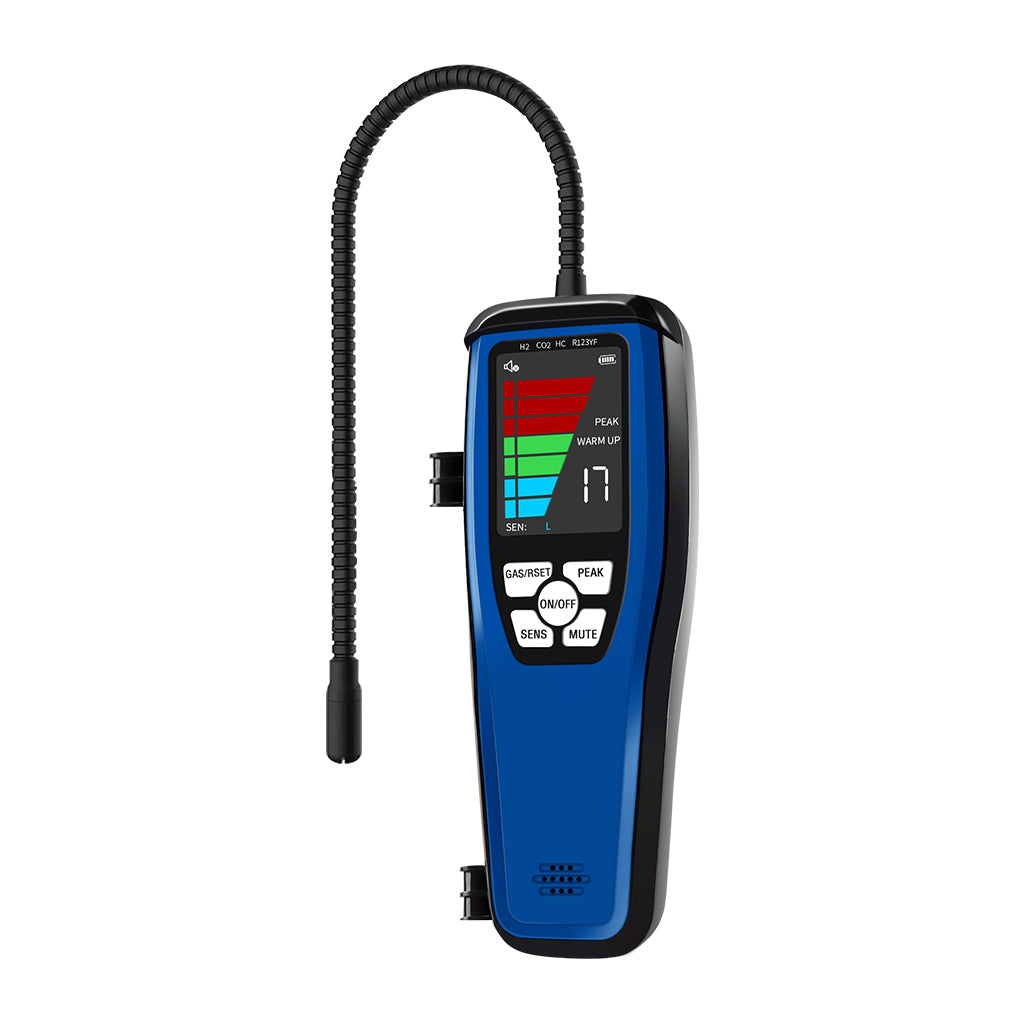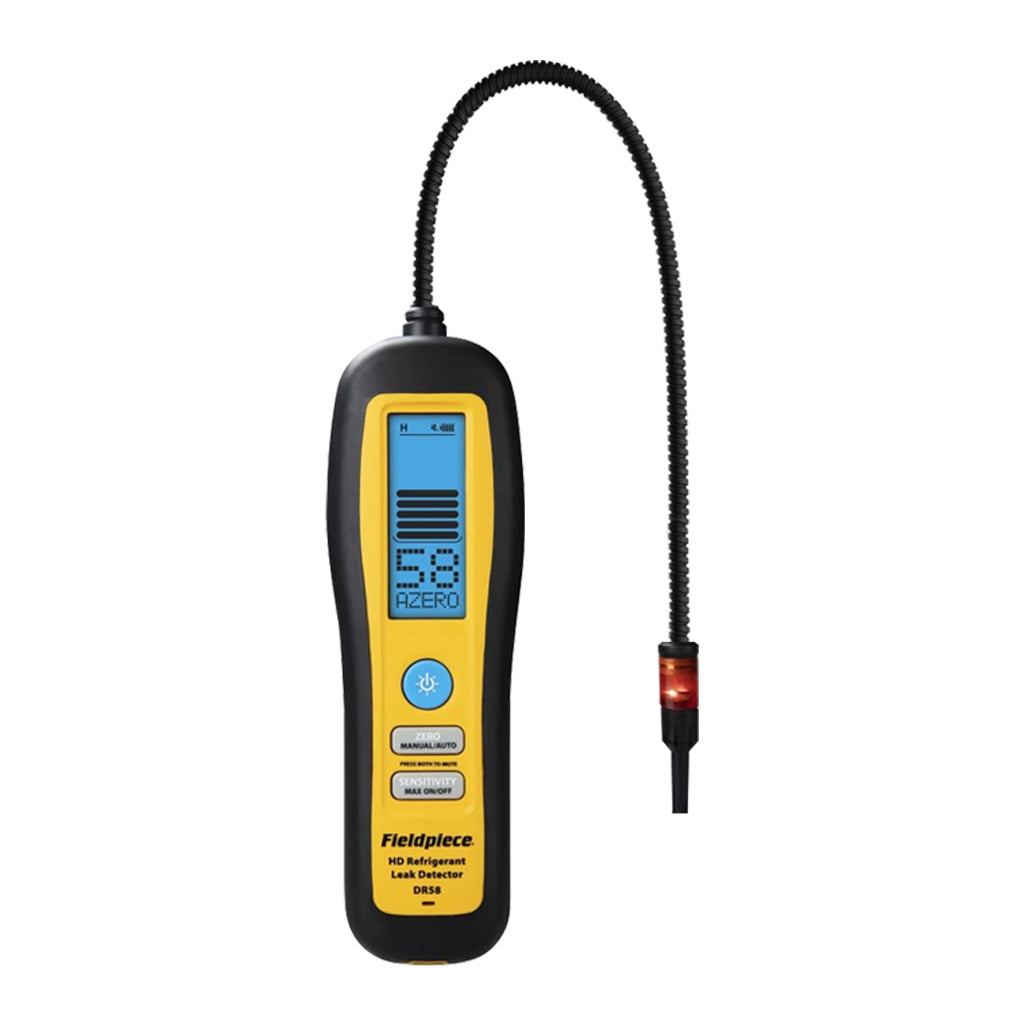The best 8 refrigerant leak detectors in 2023

There are various risks associated with refrigerant leakage for individuals, the environment, air conditioners, and refrigerators. Freon and other refrigerants can be dangerous if inhaled in significant doses. They may result in headaches, breathing issues, and other symptoms. Additionally, prolonged exposure might cause more severe health issues, like cancer. The ozone layer is known to be being destroyed by chlorofluorocarbons (CFCs) and hydrochlorofluorocarbons (HCFCs). Increased ultraviolet (UV) exposure and the risk of developing skin cancer can result from this. The efficiency of the refrigeration system can be reduced as a result of refrigerant leakage, which can increase operating expenses and shorten the equipment's lifespan. Therefore, prompt and precise refrigerant leak detection is crucial.
Engineers created refrigerant leak detectors to replace conventional soapy water as technology advanced. Which items, nonetheless, among the many available, are suitable for us? Determine which selling aspects are the ones that most concern you before purchasing a refrigerant leak detector.
Sensitivity: High-sensitivity detectors are better at discovering system leaks since they can detect leakage at incredibly low levels.
Compatibility: Buyers will likely want to ensure that the detector they purchase is compatible with the type of refrigerant used in their system. Some detectors are designed to detect specific types of refrigerants, while others are more versatile.
Cost: A significant factor for purchasers is the detector's cost. It's crucial to locate freon leak detectors that are affordable.
Durability: The robustness and longevity of the detector is also a key selling point for buyers. Some detectors are built to last longer and can withstand harsh conditions, while others may be more fragile and prone to damage.
Portability: Some refrigerant leak detectors are designed to be portable, and can be carried easily to different locations, making them more convenient for technicians who need to move around.
Accuracy: The accuracy of the leak detector is also a key selling point for buyers. The different types of sensors with varying degrees of accuracy
Next, I will compare and evaluate the popular HVAC refrigerant leak detectors in the market on the selling points that everyone cares about.
The best refrigerant leak detectors
| REFRIGERANT LEAK DETECTORS | PIC | SENSORS | SEN-SITIVITY |
RES-PONSE TIME |
SENSOR LIFE |
PRICE | ADVANTAGE |
| Elitech Refrigerant Leak Detector WJL-6000 |  |
Corona | 0.21oz/yr | 3 sec | 50 hours | $22.99 | 1. The cheapest price 2. The technology is simple, and many brands have this type of product 3. Small size, easy to carry 4. Detect R22, R134A, R404a, R410A 5. 7 Adjustable Sensitivity 6. Audible and visual gas leakage indicators |
| Aprtvio Refrigerant Leak Detector WJL-6000PRO |  |
Corona | 0.14oz/yr | 3 sec | 50 hours | $26.99 |
1.Upgraded version of the classic WJL-6000 with higher sensitivity, (up to 0.14oz/yr.) |
| Aprvtio Refrigerant Leak Detector ALD-100 |  |
Corona | 0.11oz/yr | 3 sec | 50 hours | $64.99 |
1. 13.98 inches flexible probe |
| Fieldpiece Refrigerant Leak Detector DR58 |  |
Heated Diode | 0.03 oz/yr | 2 sec | 100 hours | $314.00 | 1.Heated Diode Refrigerant Leak Detector 2.Sensitivity better than 0.03 oz/yr (1g/a) 3.Bright, LCD screen with easy-to-see bar graphs and numeric readings 4.18-hour USB rechargeable lithium-ion battery 5.Detects all HFC, CFC, HCFC, HFO and blends (Avoid explosive and flammable refrigerant gas) |
| Inficon Refrigerant Leak Detector 705-202-G1 |  |
Heated Diode | 0.25 oz./yr | 2 sec | 100 hours | $201.62 | 1.Sensitivity of 0.25 oz./year (7 g/year) 2.Detects all CFCs, HCFCs, HFCs, and HFOs. A2L Certified 3.Proven heated diode sensor for reliable leak checking 4.Sensor Life: 100 hours 5. Automatic background adjustment ("zeroing") 6. Runs on two D-cell alkaline batteries |
| Aprvtio Refrigerant Leak Detector ALD-200 |  |
Heated Diode | 0.14oz./yr | 2 sec | 500 hours | $109.99 |
1. 3 modes of sensitivity with maximum sensitivity up to 0.14oz./yr |
| Elitech Refrigerant Leak Detector ILD-200 |  |
Infrared | 0.14oz/yr | 2 sec | 10 Years | $224.99 | 1. Infrared Leak Detector 2.faster response speed 3. maximum sensitivity is up to 0.14oz/yr. 4.Detect all kinds of halogen refrigerants including CFCs, HFCs, HCFCs, HCs, HFOs and mixed refrigerants such as R11/R22/R404a/R410a/R600a/R1234yf and Blends such as AZ-50, HP62, MP39 etc. |
| APRVTIO Refrigerant Leak Detector ALD-300 |  |
Infrared | 0.11oz/yr | 2 sec | 10 Years | $199.99 | 1. Infrared Leak Detector 2.faster response speed 3. maximum sensitivity is up to 0.11oz/yr. 4.Detect all kinds of halogen refrigerants including CFCs, HFCs, HCFCs, HCs, HFOs and mixed refrigerants such as R11/R22/R404a/R410a/R600a/R1234yf and Blends such as AZ-50, HP62, MP39 etc. |
According to the above table,there are three main types leak detectors, Corona leak detectors, heated diode leak detectors, and infrared leak detectors, but they use different technologies to detect leaks.
Corona leak detectors: These detectors use a high-frequency electrical current to ionize the refrigerant molecules in the air. When a leak is present, the ionized refrigerant molecules will be attracted to a sensor, creating a "corona" of electrical discharge. The detector then amplifies this discharge, creating an audible or visual signal that indicates a leak.
Heated diode leak detectors: These detectors use a heated diode sensor that changes resistance when it comes into contact with refrigerant molecules. The detector compares the resistance of the sensor to a reference sensor, and if there is a difference, it indicates a leak.
Infrared leak detectors: These detectors use infrared sensors to detect the presence of refrigerant molecules. They work by detecting the infrared radiation emitted by the refrigerant molecules, which is specific to each type of refrigerant. When a leak is present, the detector will detect the infrared radiation and indicate a leak.
Each type of leak detector has its own advantages and disadvantages, and the choice of which one to use will depend on the specific application, the type of refrigerant being used and the environment.
To sum up, the corona leak detector is the cheapest, but the sensor life is limited, more important, it is easily affected by humidity and dust. If you are not a professional repairer, you can choose this kind of detector. The detection range of the heated diode leak detector is wider than that of the corona leak detector, and the sensor life is much longer, but the price is higher than corona leak detector, and it cannot detect flammable and explosive refrigerants. Infrared leak detectors have the highest sensitivity and sensor life, can detect almost all refrigerants (except for CO2 refrigerants), but the price is very expensive.




